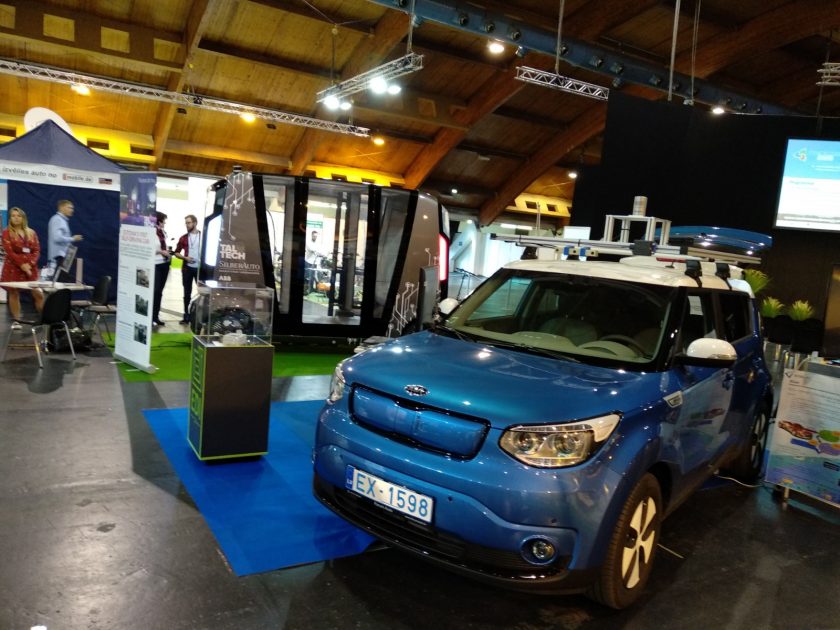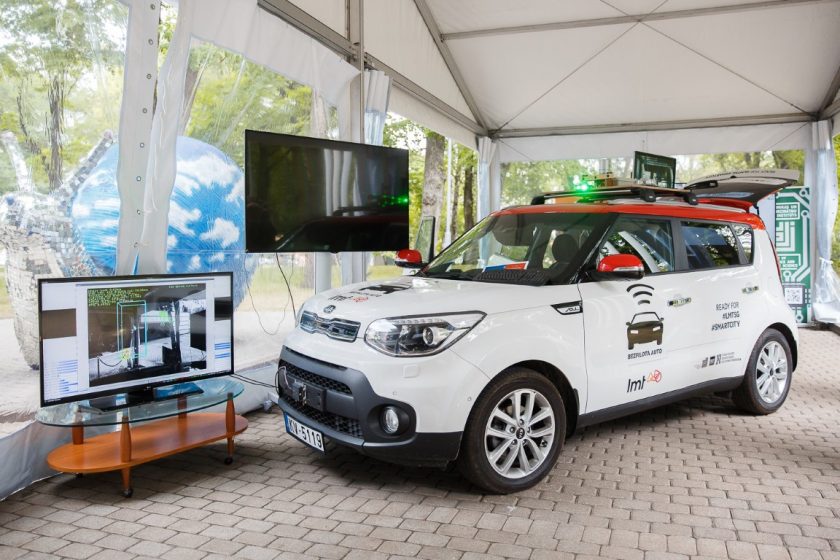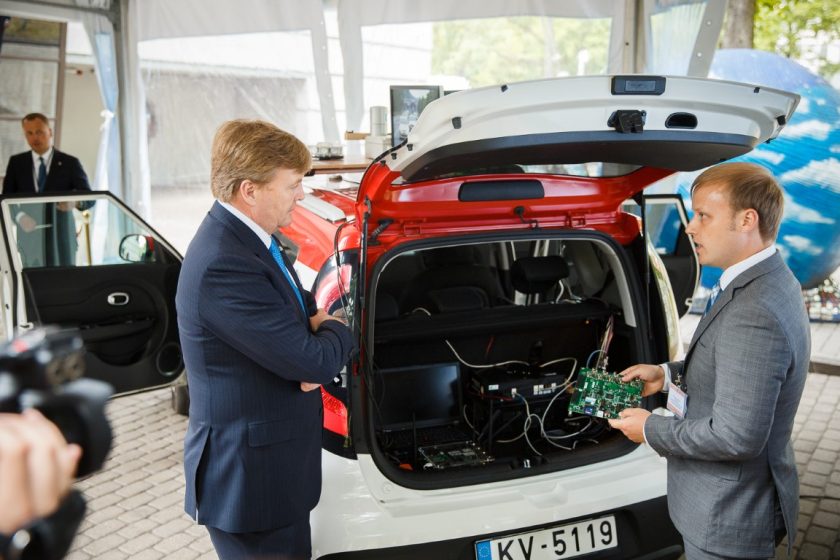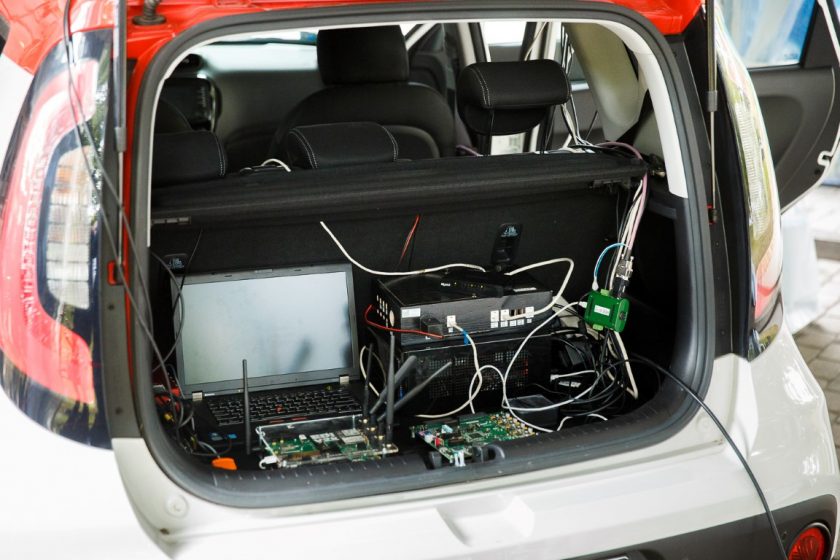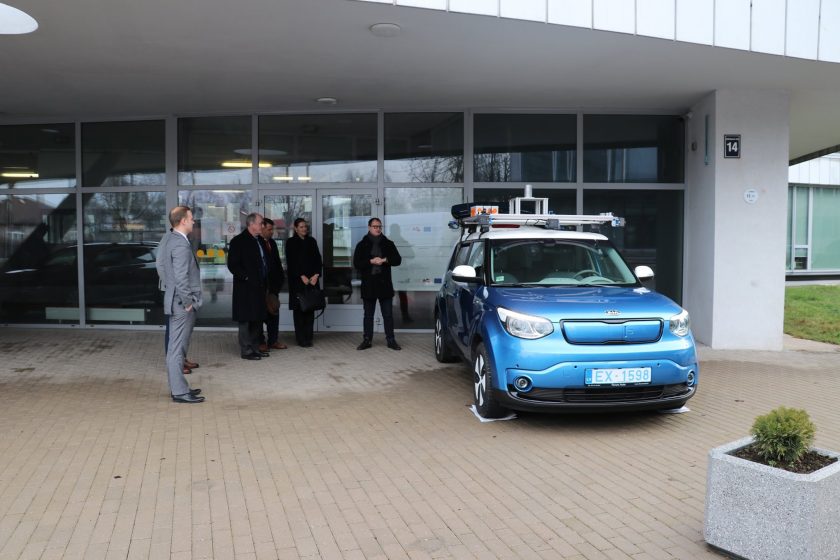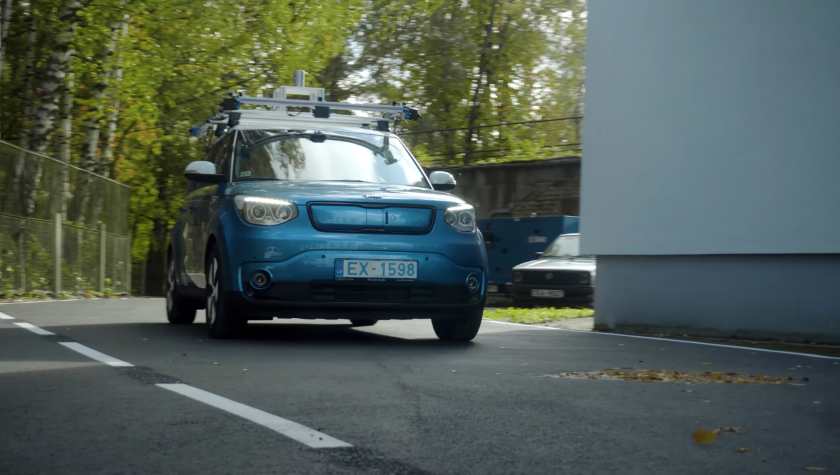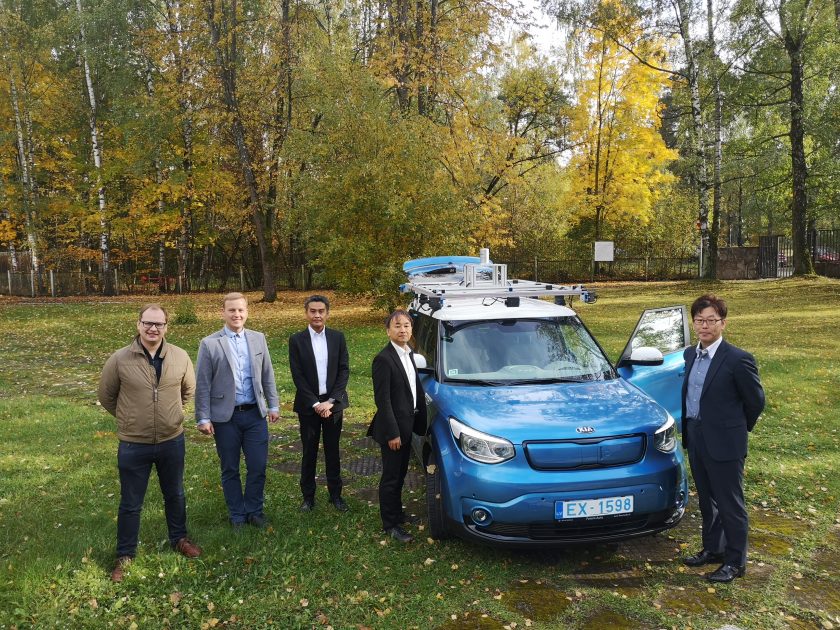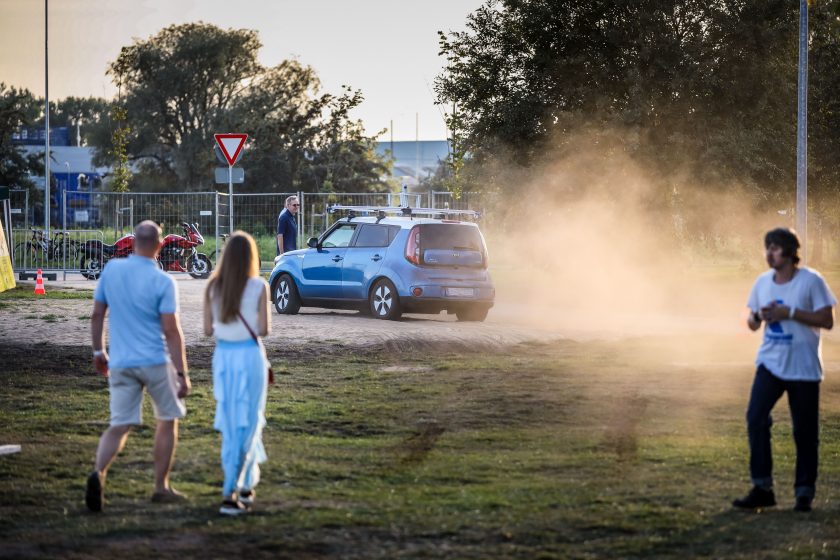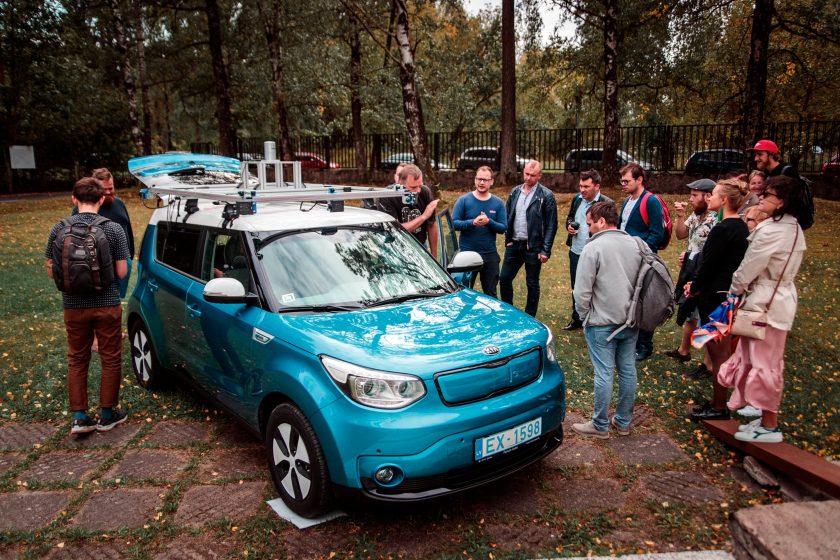EDI has been working with connected and automated driving systems since 2010. We focus on specific components for electric and automated vehicles and other mobile platforms with zero emissions/zero accidents in mind. These components include:
- torque-vectoring algorithms (also based on NN) implemented in FPGA based SoC and Infineon Aurix safety controllers (H2020 3CCar project)
- fail-aware, fail-safe and fail-operational vehicle to everything (V2X) communication system (H2020 AutoDrive project)
- DbW capabilities, and fail-operational perception systems (project incorporating research on sensor fusion (cameras, radars, lidar) and embedded intelligence where perception models (e,g, object detection deep NN) are implemented on FPGA-based SoC (H2020 PRYSTINE project)
- 5G enabled cooperative driving (H2020 5G-routes project)
- AI-based near field (up to 3m), high-resolution 3D 360-degree perception system (H2020 AI4CSM project)
- A solution for the protection of pedestrians by equipping the infrastructure with perception and communication capabilities; reporting cars during temporary road repairs; reporting cars and planning their trajectories in the event of an emergency vehicle approaching (Horizon Europe Augmented CCAM project)
- etc.
Our research resulted in the first self-driving car demonstrator in Latvia, awarded by LZA as one of the top scientific achievements in 2017. We also contribute to the development of connected and cooperative driving capabilities, demonstrated by research in V2X communication and participation in Grand Cooperative Driving Challange (GCDC) in 2011 and 2016. Several research projects have focused on ITS for traffic monitoring and optimization (projects ESIF MITS, DziNTA), while research in sensor networks (incl. DevOps approach) has been applied for train integrity control, maintenance, and logistics (projects FP7 DEWI, H2020 ENACT). Furthermore, EDI has developed technologies for Automated railway level crossing control systems, intelligent transport and emergency management, and automatic detection of people and vehicles using video surveillance cameras.
In addition, EDI has been working on drone technologies, where we have the following expertise: prototyping of custom drones for various use-cases (inspection, localization, mapping), including the equipment of drones with various sensors; on-board processing of computationally demanding algorithms using modern heterogeneous SoCs (MPU + FPGA + GPU); autonomous flight controller development without a base station; testbed for drone testing with indoor GPS-like camera-based localization.
